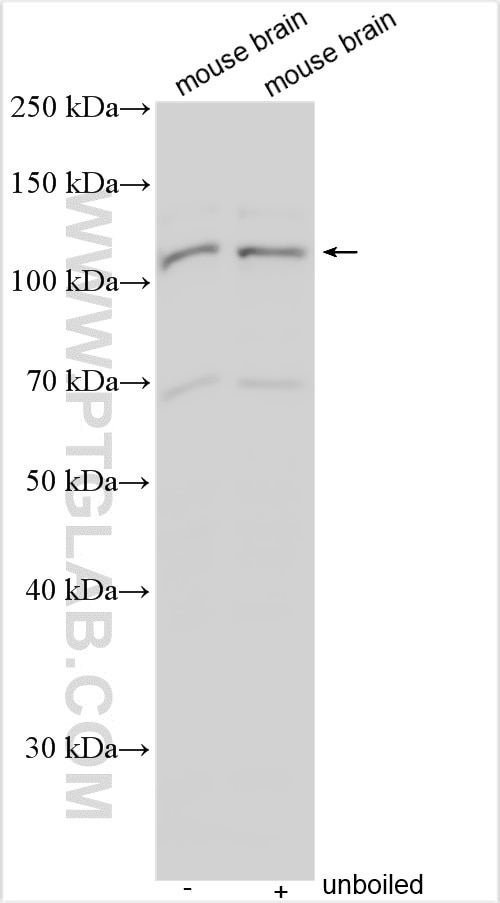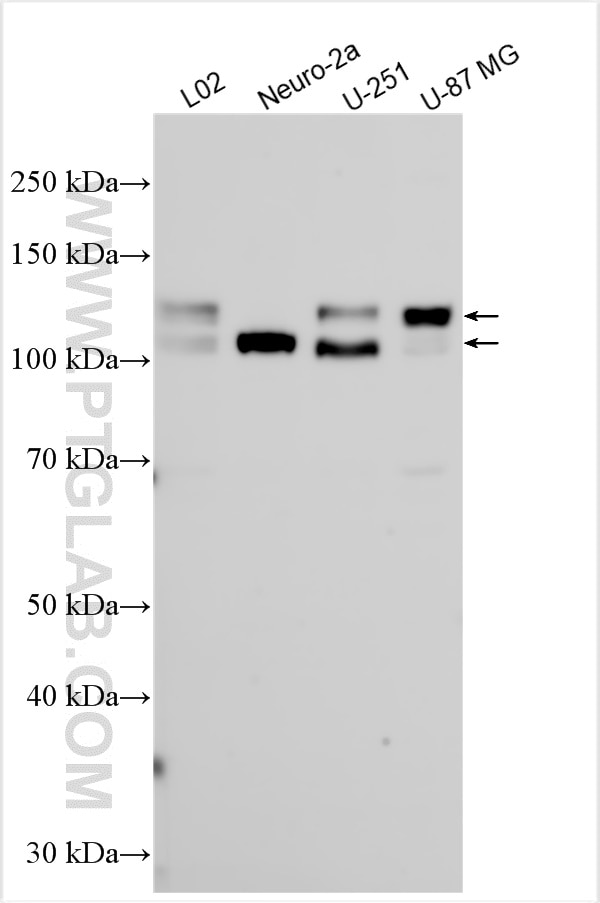PCDH8 Polyklonaler Antikörper
PCDH8 Polyklonal Antikörper für WB, ELISA
Wirt / Isotyp
Kaninchen / IgG
Getestete Reaktivität
human, Maus
Anwendung
WB, ELISA
Konjugation
Unkonjugiert
Kat-Nr. : 14000-1-AP
Synonyme
Geprüfte Anwendungen
| Erfolgreiche Detektion in WB | Maushirngewebe, L02-Zellen, Neuro-2a-Zellen, U-251-Zellen, U-87 MG-Zellen |
Empfohlene Verdünnung
| Anwendung | Verdünnung |
|---|---|
| Western Blot (WB) | WB : 1:500-1:2000 |
| It is recommended that this reagent should be titrated in each testing system to obtain optimal results. | |
| Sample-dependent, check data in validation data gallery | |
Produktinformation
14000-1-AP bindet in WB, ELISA PCDH8 und zeigt Reaktivität mit human, Maus
| Getestete Reaktivität | human, Maus |
| Wirt / Isotyp | Kaninchen / IgG |
| Klonalität | Polyklonal |
| Typ | Antikörper |
| Immunogen | PCDH8 fusion protein Ag5090 |
| Vollständiger Name | protocadherin 8 |
| Berechnetes Molekulargewicht | 1070 aa, 113 kDa |
| Beobachtetes Molekulargewicht | 104 kDa,113 kDa |
| GenBank-Zugangsnummer | BC036025 |
| Gene symbol | PCDH8 |
| Gene ID (NCBI) | 5100 |
| Konjugation | Unkonjugiert |
| Form | Liquid |
| Reinigungsmethode | Antigen-Affinitätsreinigung |
| Lagerungspuffer | PBS with 0.02% sodium azide and 50% glycerol |
| Lagerungsbedingungen | Bei -20°C lagern. Nach dem Versand ein Jahr lang stabil Aliquotieren ist bei -20oC Lagerung nicht notwendig. 20ul Größen enthalten 0,1% BSA. |
Hintergrundinformationen
Protocadherin-8 (PCDH8) is a member of the protocadherin family that belongs to the cadherin superfamily. Protocadherins are calcium-dependent adhesion proteins and have been implicated in neural cell-cell interactions. They are abundantly expressed in the central nervous system during embryonic development and in adulthood (PMID: 24214103). PCDH8 is a tumor suppressor involved in tumorigenesis.
Protokolle
| PRODUKTSPEZIFISCHE PROTOKOLLE | |
|---|---|
| WB protocol for PCDH8 antibody 14000-1-AP | Protokoll herunterladen |
| STANDARD-PROTOKOLLE | |
|---|---|
| Klicken Sie hier, um unsere Standardprotokolle anzuzeigen |



